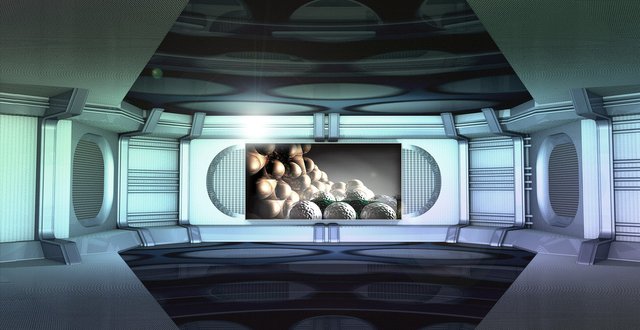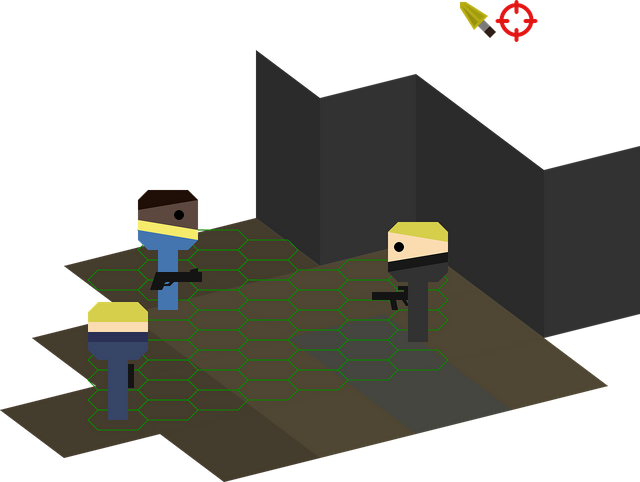
Is it possible that the world we live in isn’t real? Is it likely? I love thinking about these kind of issues, and they are in the limelight thanks to Elon Musk’s comments at a recent conference.
At first listen, most people dismiss this theory immediately. Our intuition resists the idea that our world is not closely represented by our perceptions. We all feel a strong sense that the world we see is “real” and not merely a simulation.
In many ways, the “we are in the matrix” hypothesis isn’t that different from Rene Decartes’s famous “Evil Demon” thought experiment.

How do we know that the world of our perceptions isn’t just a trick of some evil demon making us see things that aren’t there? What evidence can we point to to find any certain truth? Descartes never comes up with a great answer, and replacing the demon with a computer makes the hypothetical more compelling to our modern day sensibilities.
Musk’s argument is that all advanced civilizations will eventually create countless simulated realities (as a video game designer, I can’t argue against this claim). Since for every one advanced civilization, there will be millions of simulations, it is not just possible that we are in a simulation, but it is most likely the case.

This argument is hard to resist, unless you believe
A. Technological progress will stop
B. It is impossible to build a simulation that seems like the world we live in.
Neither of the above seems like a plausible argument. Even if you don’t buy that we are probably in a simulation, it is impossible to prove that we are not in a simulation. Any evidence you can present could just as easily be a part of the simulation itself. Thus, we must face the possibility directly.
On a deeper level, there is an argument that even if we are in the real world, our perception has not evolved to see it truly as it is, but instead only to represent the world in a way that is evolutionarily advantaged.
Just like the way our desktop represents our computer contents but of course is not actually our computer contents (i.e. there is no yellow folder in the left corner of the screen), so too does our image of an apple not represent any actual apple in the world, just the fitness algorithm for something edible. This TED talk discusses the concept in more detail.
So where does that leave us? I think trying to answer the Matrix question via physics is impossible. We can continue to investigate deeper and deeper into the nature of reality, but it is not possible to ever hit rock bottom and have certain access to reality. The answer to the question “Are we living in a simulation” is thus not as fruitful as the philosophical question “What does it mean to live in a world that might be a simulation?”
I’ve come to the position that the absolute nature of reality is not actually relevant to making meaningful claims about the world. Whether we are in a simulation or not, we can only speak about our perceptions and can never with absolute certainty relate them to anything beyond our perceptions.
We can still enjoy the taste of an apple, love our spouse, and have hopes and dreams for the future, even if none of those things are real. It is our perception that makes them real. This allows us to be agnostic to the simulation or evil demon question, and helps to ground our reality on the experience itself, rather than whatever is behind the curtain.
I recognize that this position opens me up to some strange corollary beliefs. One question helps illustrate the dilemma: If you could be given the option to live an ideal life inside of a simulation (assuming you could be made to forget it is a simulation) would you choose to do so?
My gut tells me no, I want to be in the real world, but my argument above tells me otherwise. How would you answer this question? If a simulated paradise is superior to a mediocre reality, how does that impact your view of present day virtual worlds and people who spend their whole lives in social media? We often mock people who spend their lives in the computer, but are these forms of life really less valuable than the real world? If so, what makes them so?
Whether real or illusory, this world brings with it countless amazing experiences, choices, and interactions. Time spent investigating the nature of reality is a worthwhile pursuit, but never forget to enjoy the life you have during that time. If there is one thing I’ve learned from a life of gaming, its that you can have meaningful and important experiences even in a made up world.
If we buy Musk's argument that we are probably in a simulation (and quantum physics does agree with that assessment) then supernatural events are nothing but rarely invoked alternate threads through the software implementing alternative physical laws. Anything is possible.
It amuses me that people are willing to accept such a possibility if it's SciFi, but not willing to accept the equally reasonable (and unprovable) proposition that it is God who created this simulation of a 13.8 billion year old universe and started it running 6000 years ago. I expand on this alternative simulation hypothesis here:
God's world view might be different than yours..
Downvoting a post can decrease pending rewards and make it less visible. Common reasons:
Submit
If the folder on the computer desktop is actually representative of a series of 1s and 0s, magnetic or optical data on a disk - something very different to what we perceive it as, then it's possible that the underlying nature of reality is vastly different to what we perceive normally. It's hard to imagine how those beetles see, but I imagine that they just see sort of "hotspots" in their vision, things which seem attractive to them. We like to think that our perception is much closer to reality than theirs, but maybe it's not that much closer.
I remember I had an intense LSD trip where I became consumed with the idea that everything is information. I remember seeing possibilities stretching out in front of me in several directions, towards infinity. I do wonder if that sort of experience gives us a glimpse into deeper reality. I also wonder, in a similar vein to your question in the article, if reality is that fucking bizarre, filled with potential and so lacking in what we'd normally class as form - maybe we're better off sticking closer to our usual perceptions and pretending there's nothing behind that curtain. Nevertheless... my curiosity persists.
Downvoting a post can decrease pending rewards and make it less visible. Common reasons:
Submit
I love investigating these kinds of things. Psychedelic experiences are a great way to break through the illusion that our perception = reality. Some people can't handle that insight, but for me it just creates a sense of awe and humility that I find helpful when dealing with all the day to day worries that seem so small by comparison.
Downvoting a post can decrease pending rewards and make it less visible. Common reasons:
Submit
I would like to think that I'm in a simulation playing an evil demon hold control on everyone else's simulation.
Downvoting a post can decrease pending rewards and make it less visible. Common reasons:
Submit
I love this topic https://steemit.com/beyondbitcoin/@cryplectibles/are-we-living-in-a-simulation
I hope people read think and enjoy your post.
Downvoting a post can decrease pending rewards and make it less visible. Common reasons:
Submit
Great post and videos!
Downvoting a post can decrease pending rewards and make it less visible. Common reasons:
Submit
Downvoting a post can decrease pending rewards and make it less visible. Common reasons:
Submit
most people live in an alternate reality that was created for them by the people that control them. It begins with the education system and it continues to be enforced by the media, the workplace and most of society for the rest of their lies. This is not the type of matrix that Musk was referring to but the one that I am talking about is real, while his isn't.
Downvoting a post can decrease pending rewards and make it less visible. Common reasons:
Submit
How do you know it isn't? I believe part of the theory itself is there is no way to prove it real or not.
Downvoting a post can decrease pending rewards and make it less visible. Common reasons:
Submit
This post has been ranked within the top 50 most undervalued posts in the first half of Nov 11. We estimate that this post is undervalued by $6.59 as compared to a scenario in which every voter had an equal say.
See the full rankings and details in The Daily Tribune: Nov 11 - Part I. You can also read about some of our methodology, data analysis and technical details in our initial post.
If you are the author and would prefer not to receive these comments, simply reply "Stop" to this comment.
Downvoting a post can decrease pending rewards and make it less visible. Common reasons:
Submit